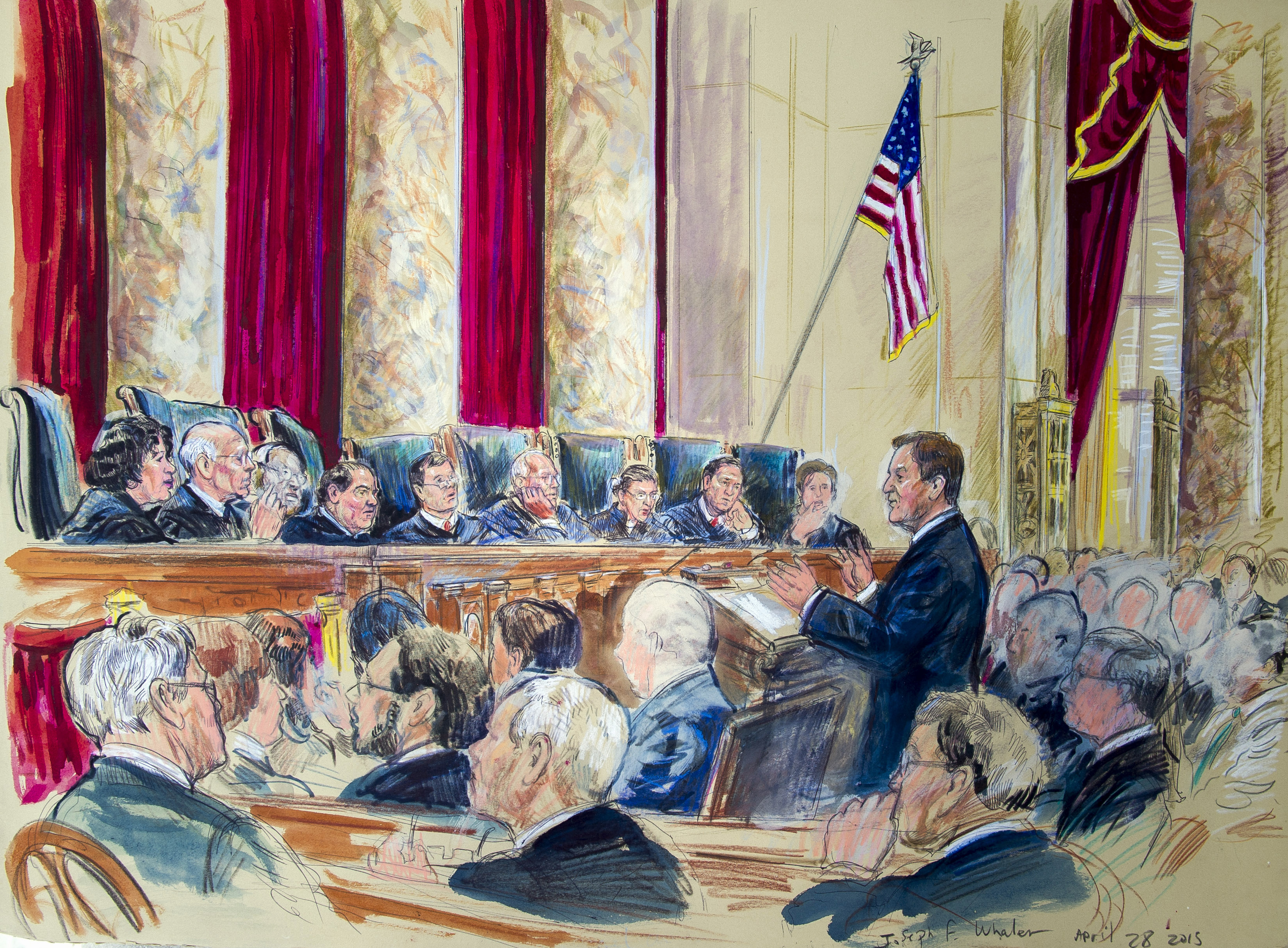Why 2016 will be a Supreme Court election
Already tired of hearing about the Court? Just wait till next year.


A free daily email with the biggest news stories of the day – and the best features from TheWeek.com
You are now subscribed
Your newsletter sign-up was successful
Liberals won an unusual number of victories in the Supreme Court term that just finished, given that conservatives have a 5-4 majority on the court. In fact, according to a tally by SCOTUSblog, the liberals prevailed in a remarkable 19 out of the 26 closely divided cases the court decided this term.
But Republicans can take heart, because things are likely to go back the way they were when the court reconvenes in October. Which is all the more reason why the court will probably be as big an issue in the 2016 presidential campaign as it has ever been. And if it isn't, it should be.
When I say that things will go back the way they were, what I mean is this: Despite the recent liberal victories, the Roberts Court has given conservatives an enormous amount to be happy about. Here are some of the things they've done in the last few years: They gutted the Voting Rights Act, made it legal for corporations and wealthy individuals to spend as much as they want to influence elections, created an individual constitutional right to own guns for the first time in American history, said that corporations can have religious rights that exempt them from certain laws, all but eliminated affirmative action, and upheld sectarian prayers at city council meetings. That's not to mention a whole lot of important but less high-profile cases in which this court has been a welcoming place for those who already have money and power. John Roberts may not have been as pure a partisan as someone like Samuel Alito, but he has come through for Republicans again and again.
The Week
Escape your echo chamber. Get the facts behind the news, plus analysis from multiple perspectives.

Sign up for The Week's Free Newsletters
From our morning news briefing to a weekly Good News Newsletter, get the best of The Week delivered directly to your inbox.
From our morning news briefing to a weekly Good News Newsletter, get the best of The Week delivered directly to your inbox.
And in the next term, there are positive signs for the right. The justices have already agreed to hear a case that could put the final nail in affirmative action's coffin, as well as one that could cripple public sector unions. The justices are also likely to take one or more cases on restrictions at abortion clinics, and if they rule the way conservatives want, it could make abortions almost impossible to obtain in large swaths of the country.
All that is unlikely to banish the memory of the last couple of weeks from Republicans' minds, and you can bet that the GOP presidential candidates are going to have to promise primary voters that they'll deliver more Supreme Court justices like Alito, and fewer like Anthony Kennedy or even Roberts. If Democrats care about their own agenda, they ought to be no less motivated to vote by the prospect of changes in the court.
That's for two reasons: the age of the justices, and the precariousness of the current majority.
By January 2017, three of the justices (Ginsburg, Scalia, and Kennedy) will be in their 80s; another (Breyer) will be 78. While most of them seem vigorous enough, it would be strange if at least one or two didn't retire in the next president's term (the last three presidents each appointed two justices).
A free daily email with the biggest news stories of the day – and the best features from TheWeek.com
While it's possible that they all might decide to hold out until there's a president of their own party to replace them, infirmity or illness may make that impossible. And it's been an awfully long time since a president had the opportunity to change the court's course. The last time a Republican managed it was when George H.W. Bush appointed Clarence Thomas to replace the retiring Thurgood Marshall. And Democrats? Believe it or not, it's been over six decades since a Democratic president had the opportunity to replace a conservative justice; the last one to do it was John F. Kennedy, who appointed Byron White to a seat when Charles Evans Whittaker, who had been appointed by President Eisenhower, resigned in 1962.
If the next president gets that chance, no matter which party he or she comes from, it will profoundly affect the court's direction. If a Republican could appoint someone to replace Ginsburg or Breyer, it would mean a 6-3 conservative majority, which means that Kennedy would no longer be the swing vote and there would be a margin for error in every case. If a Democratic president were to replace Scalia or Kennedy, then the court would go from 5-4 in favor of the conservatives to 5-4 in favor of the liberals.
Those two outcomes would produce two radically different Supreme Courts, with implications that would shape American life for decades. If you think the court has been handling controversial and consequential cases lately, just you wait.
The cases that the court decides next term will be hitting the headlines in the heart of the presidential election, with the most controversial ones likely being handed down just before the parties hold their national conventions. After that, the race could well focus in large part on what the two nominees' different visions are for the Supreme Court. At least it ought to.
Paul Waldman is a senior writer with The American Prospect magazine and a blogger for The Washington Post. His writing has appeared in dozens of newspapers, magazines, and web sites, and he is the author or co-author of four books on media and politics.
